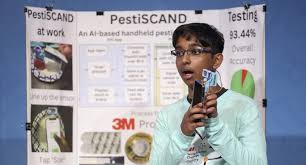
Breaking News
 How Epstein Hijacked Bitcoin with Aaron Day
How Epstein Hijacked Bitcoin with Aaron Day
 The Federal Reserve is planned to inject $16 billion into the economy this week...
The Federal Reserve is planned to inject $16 billion into the economy this week...
 Dr. Rhonda Patrick: Fasting, Creatine, Brain Performance & Longevity Breakthroughs | PBD #740
Dr. Rhonda Patrick: Fasting, Creatine, Brain Performance & Longevity Breakthroughs | PBD #740
 HIGH ALERT! Americans Will Die for Israel's Evil War with Iran | Redacted w Clayton Morris
HIGH ALERT! Americans Will Die for Israel's Evil War with Iran | Redacted w Clayton Morris
Top Tech News
 US particle accelerators turn nuclear waste into electricity, cut radioactive life by 99.7%
US particle accelerators turn nuclear waste into electricity, cut radioactive life by 99.7%
 Blast Them: A Rutgers Scientist Uses Lasers to Kill Weeds
Blast Them: A Rutgers Scientist Uses Lasers to Kill Weeds
 H100 GPUs that cost $40,000 new are now selling for around $6,000 on eBay, an 85% drop.
H100 GPUs that cost $40,000 new are now selling for around $6,000 on eBay, an 85% drop.
 We finally know exactly why spider silk is stronger than steel.
We finally know exactly why spider silk is stronger than steel.
 She ran out of options at 12. Then her own cells came back to save her.
She ran out of options at 12. Then her own cells came back to save her.
 A cardiovascular revolution is silently unfolding in cardiac intervention labs.
A cardiovascular revolution is silently unfolding in cardiac intervention labs.
 DARPA chooses two to develop insect-size robots for complex jobs like disaster relief...
DARPA chooses two to develop insect-size robots for complex jobs like disaster relief...
 Multimaterial 3D printer builds fully functional electric motor from scratch in hours
Multimaterial 3D printer builds fully functional electric motor from scratch in hours
 WindRunner: The largest cargo aircraft ever to be built, capable of carrying six Chinooks
WindRunner: The largest cargo aircraft ever to be built, capable of carrying six Chinooks
14-Year-old Wins 'America's Top Young Scientist' for Inventing Pesticide Detector...

Sirish Subash set himself apart with his AI-based sensor to win the grand prize of $25,000 cash and the prestigious title of "America's Top Young Scientist."
Like most inventors, Sirish was intrigued with curiosity and a simple question. His mother always insisted that he wash the fruit before eating it, and the boy wondered if the preventative action actually did any good.
He learned that 70% of produce items contain pesticide residues that are linked to possible health problems like cancer and Alzheimer's—and washing only removes part of the contamination.
"If we could detect them, we could avoid consuming them, and reduce the risk of those health issues."

 RNA Crop Spray: Should We Be Worried?
RNA Crop Spray: Should We Be Worried?

